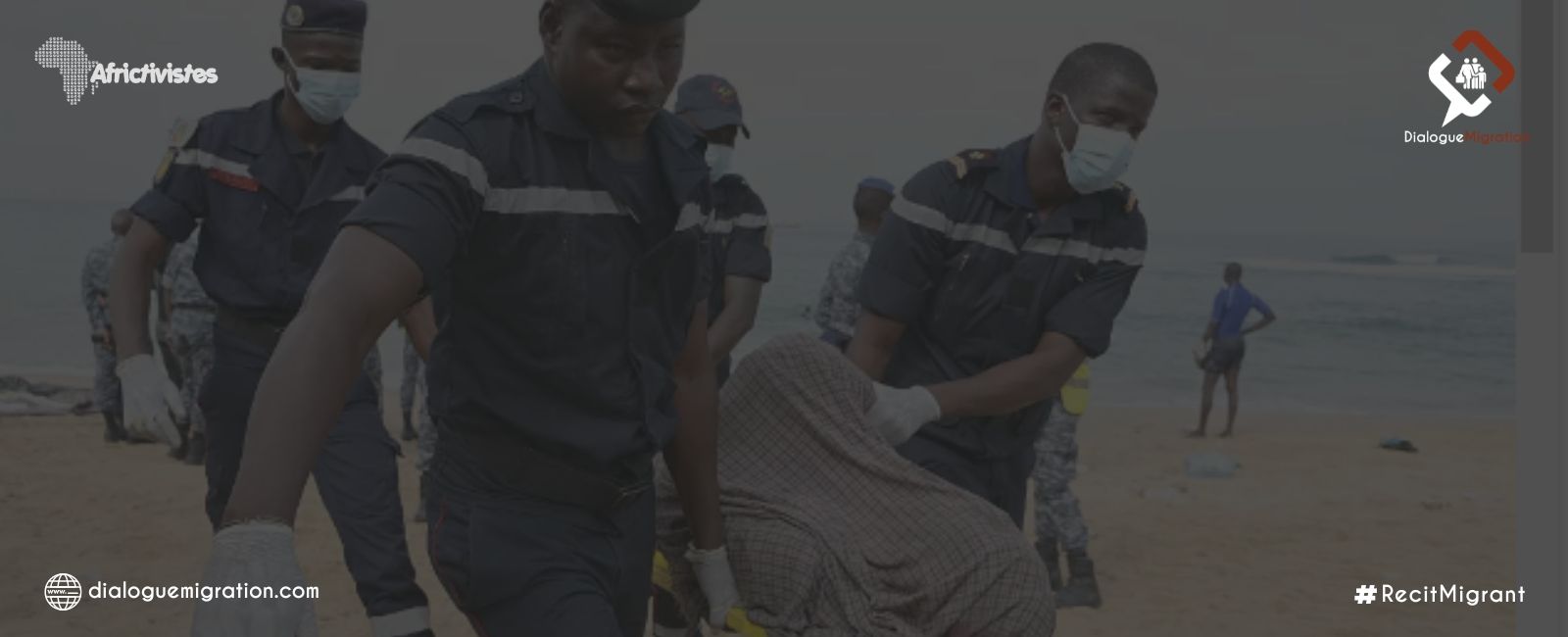

In Senegal, the month of July was marked by a series of capsizes and disappearances of boats of candidates who wanted to reach the Spanish coast. Nearly fifty deaths were counted between Rufisque, Ouakam and Saint-Louis in the period from 10 to 25 July 2023. For the number of missing persons, it is more complicated. The Senegalese government, the Spanish Navy and the Moroccan authorities in Dakhla do not agree on the figures.
It all began on July 10, with an announcement published by the Spanish Marine Rescuers on Twitter reporting a boat of 200 people from Senegal rescued off the coast of Las Palmas. “The Sasemar 101 aircraft, mobilized from the Maritime Rescue Coordination Center of Las Palmas, continues the search for a cayuco (canoe) that left Senegal with about 200 people on board,” posted this structure, which depends on the Spanish Ministry of Transport and Urban Mobility, around July 10 at midnight 53 minutes.
This was followed by a national and international media outburst on the disappearance at sea of 300 Senegalese migrants who would have left Kafountine since June 26, 2023. The media all quote the founder of the NGO Caminando Fronteras, Helena Maleno. “Every minute counts to find alive the more than 300 people aboard Senegalese canoes (…). We need more research resources and better collaboration between Mauritania, Spain and Morocco,” Maleno said on Twitter on Tuesday (July 11th).
The mayor of Kafountine told the press about the departure of migrants, of whom he had no news. He said that there were among them Senegalese but also “Gambians, Guineans, Sierra Leoneans… “. David Diatta, mayor of this fishing village insisted on RFI: “These migrants are not from Kafountine, for the most part. They come from the rest of Senegal, but also from the sub-region, namely Gambia, Guinea-Bissau, Guinea-Conkary, and we even see Nigeriens. Before, it was timid, because they left rather from Mbour.”
Three migrant boats, declared missing by the NGO off the Canary Islands, remain untraceable because Spanish rescuers have not located boats in the area.
The denial of the Senegalese government
In a statement late in the evening of Tuesday, July 11, the Senegalese Ministry of Foreign Affairs wrote that it had “learned with astonishment of the publication, on social networks, of information reporting the disappearance at sea of at least 300 Senegalese, candidates for emigration, whose boats from Kafountine were heading for the Canary Islands”. The services of Minister Aissata Tall Sall have denied this information which they consider “unfounded”.
A macabre aquatic carnival
Less than 48 hours after this denial by the Senegalese government, a canoe from Kafountine capsized near the coast of Saint-Louis (northern Senegal) temporarily killing 8 people. The boat had engine problems. The Minister of the Interior travels on the day of the tragedy on the scene. An update on the situation by the Ministry of the Interior of the victims will report, two days later, 14 deaths out of more than 60 candidates who occupied the canoe. The rest are still missing.
On July 19, in the evening (11:22 p.m.), the Spanish Navy and its rescue teams intercepted to rescue another canoe from Senegal with 79 people on board, including 3 women.
On July 20, another canoe capsized off the coast of Morocco. It came from the city of Rufisque (Commune of Dakar). Provisionally, 18 dead are counted, according to family sources cited by the Rfm (local radio), taken up by Seneweb.
The dramas don’t stop there. And the multiple deaths recorded and relayed by the media do not succeed in deterring the candidates who continue to borrow the boats of misfortune. On July 23, the Spanish Navy again rescued 103 sub-Saharan migrants from a canoe that came from Senegal, according to these characteristics.
On Monday, July 24, 17 bodies of Senegalese are recovered in Ouakam, in the sea, following the capsizing of their canoe which was bound for Spain. The number of candidates who were on board the vessel is still unknown. It should be noted that two of them were saved.
Witnesses like the vice-president of the Ouakam fishing wharf accused the Senegalese Navy of chasing the migrant canoe before hitting it?
The next day, July 25, another canoe arrived in the Canary Islands at 05:06 with 83 sub-Saharans on board, 82 of whom were rescued by the Spanish Navy. One death recorded.
The hundreds of deportees from Dakhla
Hundreds of Senegalese illegal migrants have washed up on the Moroccan coast of Dakhla. Intercepted by the Moroccan navy, they were kept in accommodation centres until they were repatriated to Senegal. “Senegalese candidates for irregular emigration who were rescued by the Royal Moroccan Navy between 09 and 22 July 2023 and housed in reception and accommodation centers in the Dakhla-Oued Eddahab region will return home this weekend,” announced the services of the minister to the Minister of Foreign Affairs, in charge of Senegalese abroad.
In an information note sent to APS, they specify that this repatriation will take place in two waves. “The first [group] will leave Morocco on Friday, July 28, 2023 and the second Sunday, July 30, 2023,” said the Director of Senegalese Abroad, Mrs. Annette Seck Ndiaye. For this first operation, 478 Senegalese migrants were repatriated to the country.
The UN’s call on States to safeguard the rights of migrants in rescue operations
“States must unite and close gaps in proactive search and rescue, rapid disembarkation and safe regular routes. These collective efforts must focus on the human rights of migrants and the saving of human lives,” said Mr. Federico Soda, Director of the Operations and Emergencies Department of the International Organization for Migration (IOM), on July 16, noting that any search and rescue action must be carried out in compliance with the obligation to prevent loss of life at sea.
UNHCR and IOM reiterate that search and rescue at sea is a legal and humanitarian imperative. “The EU must put security and solidarity at the heart of its work in the Mediterranean,” said Gillian Triggs, UNHCR’s Assistant High Commissioner for Protection.
Given the increase in refugee and migrant movements in the Mediterranean, UNHCR believes that collective efforts, including greater coordination among all Mediterranean States and shared responsibility, are essential to save lives. “This includes the establishment of a regional disembarkation and redistribution mechanism for people arriving by sea, which we continue to advocate,” Triggs added.


